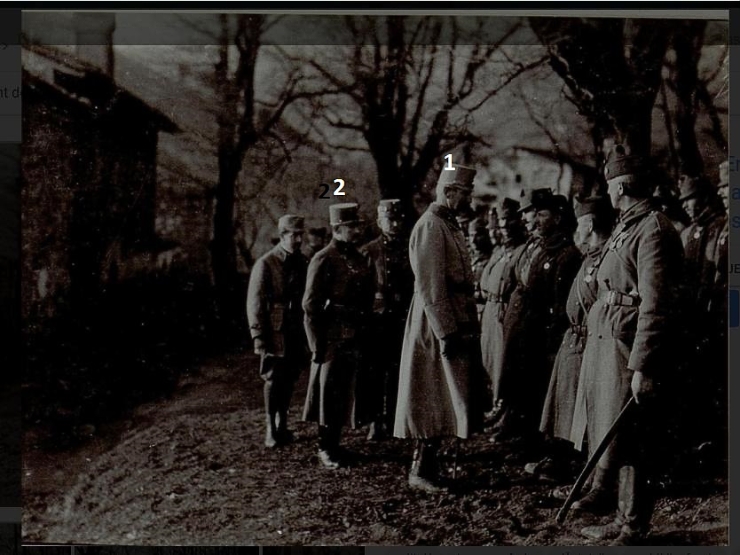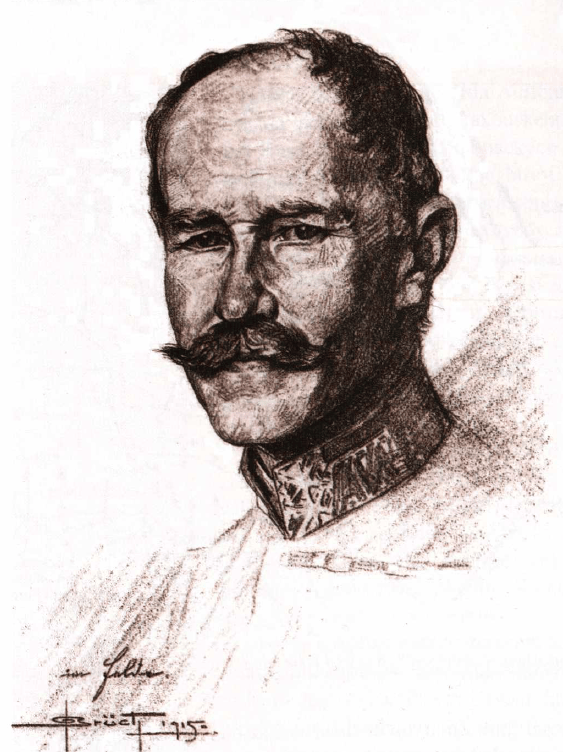Díky za zajímavý článek. 
19.01.1862 - General Kralíček
Categories: Personalities , First World War , Calendar
He was born on 19 January 1862 in Hustěnovice in the Uherské Hradiště region as the youngest of eight children and was orphaned as a boy. Life was not kind to him, yet General Rudolf Králíček ranked among the most important military leaders of the Austro-Habsburg army. He could have become even the most influential.
His excellence was hampered by constant health complications, and he often suffered from illness. His health was very fragile and his prolonged stay at the front made him worse and worse. Rabbit was born into a railwayman's family and began his military career at the age of eighteen in 1880 by entering cadet school. He was one of the skilful soldiers and by the outbreak of the First World War he had already attained the rank of lance-marshal, commanding the 28th Infantry Division in Ljubljana.
And he continued to advance successfully through the ranks. On the Russian front he became commander of the IX Army Corps of the Third Army. "Soon he was at the head of the army group "Rabbit", together with the Fourth Army, fought hard battles in the Russians for access to the Carpathians. In the breakthrough of the Russian front at Gorlice in May 1915, his corps captured Rzeszów and penetrated to the San River," write historians led by Jiří Pernes in the book Under the Imperial Banner.
In June, during Brusilov's offensive, he held the line of defence on the Sereti River in his corps zone in heavy fighting with Russian superiority. A month later he managed to reach Lvov. In the autumn, however, his time on the Russian front came to an end as he fell ill and had to be hospitalized. In February 1917 he went to the Italian front, where he became commander of the XVI Army Corps of Boroevich's 5th Army at Gorizia. He was able to organize the defense well during the Tenth and Eleventh Battles of Soca. He thus earned promotion to general of infantry in May 1917. However, his unit suffered significant losses due to insufficient support during the last offensive of the Austro-Hungarian Empire, when the corps attacked on the Piave in the difficult conditions of the river island.
In the autumn, Králíček had to be hospitalized again due to illness and did not return to the front. "The fact that he was one of the reliable and prudent commanders is proved by the fact that in 1918 he was among the candidates for the head of the Austro-Hungarian army corps. Apparently, this was at the instigation of Emperor Charles himself, who always made time for Králíček during his visits to the front," historians add. Why he was not chosen for this post is still unknown. The reason may have been the illnesses that plagued the general.
After the war Králíček was retired as a general of the Czechoslovak army and died on 4 January 1946 in Český Těšín. He was a Knight of the Order of Leopold and a recipient of the highest imperial order, the Iron Crown I. degree, holder of the Military Cross of Merit, the Military Medal of Merit with the Red Ribbon, the Military Service Badge II. Class for Officers, the Jubilee Commemorative Medal for the Defence Forces, the Military Jubilee Cross and the Marian Cross of the Order of the Teutonic Knights. In January 2016, General Králíček's memory was honoured in his native Huštěnovice by unveiling a memorial plaque at the memorial to the fallen victims of World War I.

1- Archduke Eugene, 2- Gen. Králíček

Source: www.europeana.eu, Jíří Pernes and collective of authors.
The article is included in categories:
- Archive of articles > Personalities
- Archive of articles > Wars > First World War
- Archive of articles > Calendar
Post
Někde jsem četl že u řadového vojska nebyly ty řády a vyznamenáni uznávány po pádu RU.
Díky za článek, je zajímavý. Musím říci, že bych nechtěl být v jeho kůži, jak se říká. Užil si války až nad hlavu a úctu si určitě zaslouží. Neměl život jednoduchý. 




